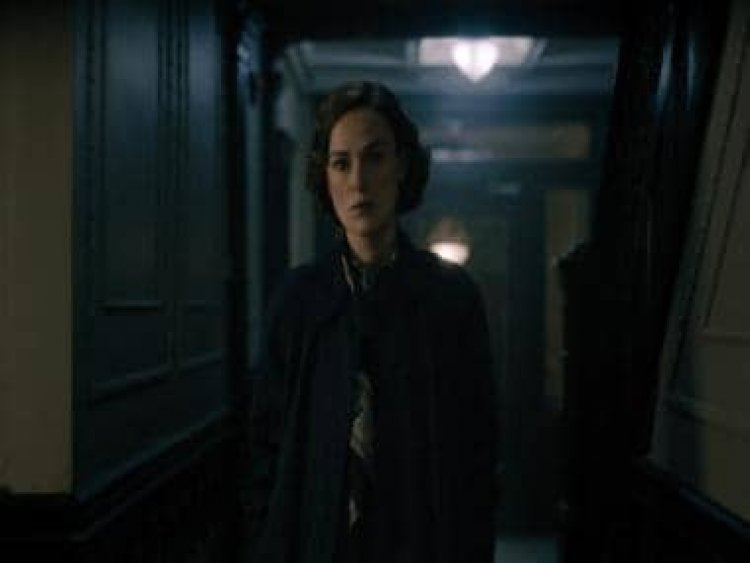The Boston Strangler Review: True Crime film subverts genre tropes to find new ground
The Boston Strangler Review: True Crime film subverts genre tropes to find new ground

In a scene from The Boston Strangler, a female journalist, chasing a lead visits a victim’s office. There she speaks to another woman, a friend of the victim. “Did you know she was pregnant?” the reporter asks, cautiously but also without hesitance. Neither of the two women recoil at the incendiary nature of the moment, for there is, evidently, a tacit understanding between the two that such things commonly come to pass their ilk. It’s a scene that perfectly illustrates what The Boston Strangler wants to be and what it possibly doesn’t. Directed by Matt Ruskin, this particular iteration of a familiar story has its heart set on the gender politics, as opposed to the unwrapping of a macabre case that gripped the city of Boston in the 60s. Visually and texturally there is a Fincher-esque hangover here, but in terms of tonal sobriety, Boston Strangler seeks and finds new ground.
Keira Knightley and Carrie Coon star as two dogged reporters from the local daily Record American, who go behind the numerical simplicity of a serial killer loose in Boston city. The method, the symbolism is obvious. A killer is apparently strangling women to death in the city and while the police believe it is one horrid, despicable version of manhood, the two women at the American, think there is more to it than meets the eye. What else could it be? For one thing, this film is much more than the processional walk through the many sub-routines of journalism meeting crime investigation. It’s women, for a change, doing the thinking, the running around and the asking.
The template is obviously feminist, but the film doesn’t necessarily beat you down with that information explicitly. There are challenges, obscuring factors, stubborn male editors and a whole bunch of men who’d rather use the women to sell the story than shape it. But it’s an inadvertent fallout of the context that the film addresses with a soft grip rather than a dizzying chokehold. At one point the paper choses to print the faces of the two reporters investigating, to make an austere yet bourgeois claim at platforming women while clipping their wings on the inside. Thankfully, none of it is oversentimental, nor stretched to the point of becoming metallic and noisy messaging. The film focuses on the case, allows its women to break through brittle ceilings, and is more than happy to even afford them agency.
Knightley is excellent as Loretta McLaughlin, an obsessive workaholic who leaves weekend dinners and family plans to chase leads that refuse to yield just as easily as she’d like to commit to them. Carrie Coon, plays the somewhat restrained and objective Jean Cole, the more level-headed of the two reporters who understands the difference between obsession and purpose. The two are ably supported by a cast that includes the terrific Chris Cooper, as the editor who lays out the hard truths in a manner that feels both sincere and curt. It’s a masterful performance, the inanimate, unremarkable quality of which can, at times, overshadow lesser performers of the cast. The Boston Strangler was believed to have murdered 13 women, only one of which was successfully tied to the conviction of one Albert DeSalvo.
DeSalvo is the pivot here, but he is not the story. The entire canvas of this grisly slog of crimes, is uncovered, or at least speculated, by the women who believe things cannot be as simple as they seem. It’s not exactly a reveal, as much as a casual admonishment of the attitudes of men. Men who fetishize the myth of a single killer, hooked on bloodlust and sex, while murderous, abusive monsters apply the same story for cover. It’s a fairly provocative accusation, one that is made here with grace as opposed to feminine angst. Ruskin isn’t interested in driving the film with the tropes of horror or true-crime for that matter, and while that might be a risk in itself, the net result is fresher if not always effective. The only problem might be the textural hangover from Zodiac (2007), echoes of which can be felt at several points in this dank, subverted but unbashful little film.
What works for The Boston Strangler, is the fact that for a film carried by two women, its world doesn’t necessarily want to seduce you with dread and death. Violence in this film can only be heard, felt or peeked at from a distance. Even the sordid details of the murderer’s methods, the kind of sycophancy that might spur in a man, such evil, is never quite romanticised the way most true-crime films usually do. The thrill, the cheapness of human erraticism, isn’t the point here. It’s in the resolve, the calculative, almost exemplary poise of the two women investigating against surmountable odds, that a perspective must present itself. And it does so, not with a thud, or a punch to the gut, but with the quiet, understated yet contemplative alacrity of a bunch of journalists, who just believe in the story they are chasing. Whether you do too, is left to you.
The Boston Strangler is streaming on Disney+ Hotstar
Manik Sharma writes on art and culture, cinema, books, and everything in between.
Read all the Latest News, Trending News, Cricket News, Bollywood News, India News and Entertainment News here. Follow us on Facebook, Twitter and Instagram.
What's Your Reaction?


























































